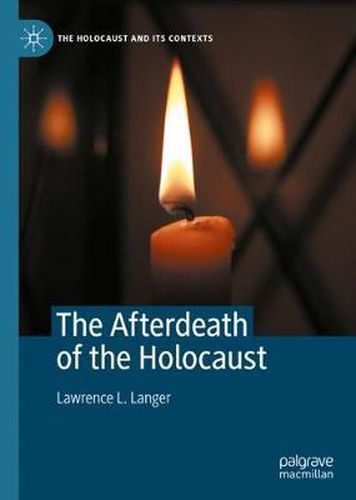Readings Newsletter
Become a Readings Member to make your shopping experience even easier.
Sign in or sign up for free!
You’re not far away from qualifying for FREE standard shipping within Australia
You’ve qualified for FREE standard shipping within Australia
The cart is loading…






This title is printed to order. This book may have been self-published. If so, we cannot guarantee the quality of the content. In the main most books will have gone through the editing process however some may not. We therefore suggest that you be aware of this before ordering this book. If in doubt check either the author or publisher’s details as we are unable to accept any returns unless they are faulty. Please contact us if you have any questions.
This book consists of ten essays that examine the ways in which language has been used to evoke what Lawrence L. Langer calls the ‘deathscape’ and the ‘hopescape’ of the Holocaust. The chapters in this collection probe the diverse impacts that site visits, memoirs, survivor testimonies, psychological studies, literature and art have on our response to the atrocities committed by the Germans during World War II. Langer also considers the misunderstandings caused by erroneous, embellished and sentimental accounts of the catastrophe, and explores some reasons why they continue to enter public and printed discourse with such ease.
$9.00 standard shipping within Australia
FREE standard shipping within Australia for orders over $100.00
Express & International shipping calculated at checkout
This title is printed to order. This book may have been self-published. If so, we cannot guarantee the quality of the content. In the main most books will have gone through the editing process however some may not. We therefore suggest that you be aware of this before ordering this book. If in doubt check either the author or publisher’s details as we are unable to accept any returns unless they are faulty. Please contact us if you have any questions.
This book consists of ten essays that examine the ways in which language has been used to evoke what Lawrence L. Langer calls the ‘deathscape’ and the ‘hopescape’ of the Holocaust. The chapters in this collection probe the diverse impacts that site visits, memoirs, survivor testimonies, psychological studies, literature and art have on our response to the atrocities committed by the Germans during World War II. Langer also considers the misunderstandings caused by erroneous, embellished and sentimental accounts of the catastrophe, and explores some reasons why they continue to enter public and printed discourse with such ease.